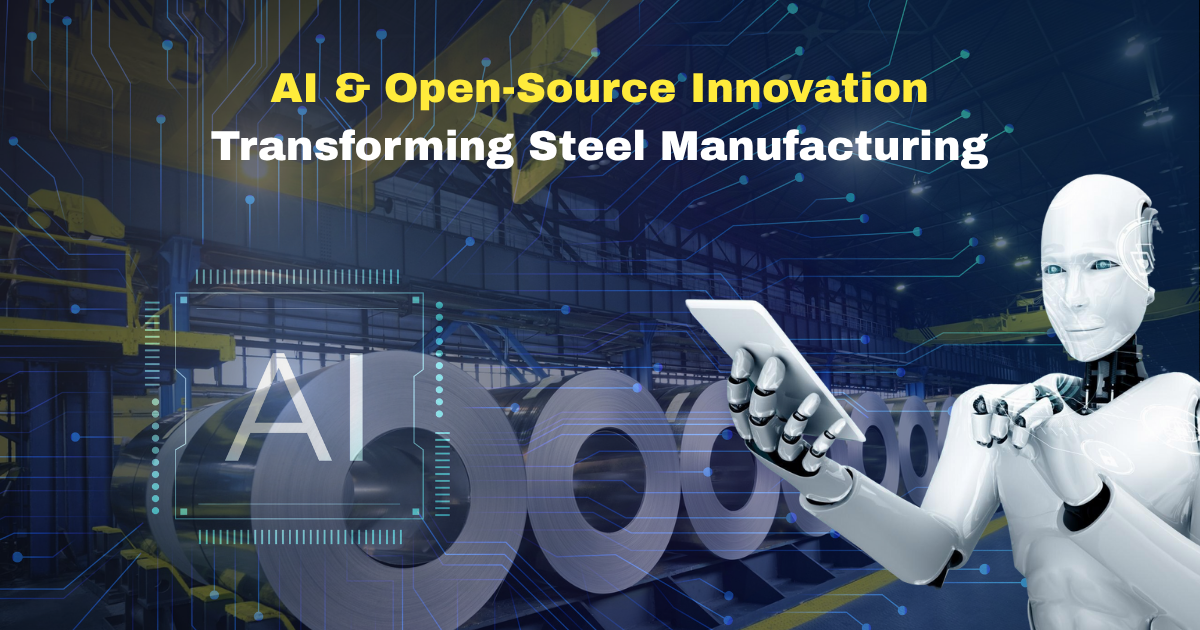India–US Trade Tensions Rise Over Steel and Auto Tariffs NMDC Limited reports a 38% drop in Q4 FY24 consolidated net profit RINL to Raise $23 Million Through Land Sales Amid Crisis

The steel industry is undergoing a digital transformation powered by artificial intelligence (AI) and open-source innovation. By integrating AI technologies across manufacturing workflows, companies are enhancing efficiency, product quality, and operational reliability.
One of the key breakthroughs is AI-driven quality control. Using advanced computer vision and machine learning, steel manufacturers can now detect defects in real time during production. This minimizes waste, reduces rework, and ensures consistently high-quality output.
Predictive maintenance is another major advancement. AI algorithms analyze equipment sensor data to anticipate mechanical failures before they happen, significantly reducing unplanned downtime and improving asset life.
What sets this transformation apart is the growing reliance on open-source AI platforms. These tools offer accessible, scalable solutions that allow even mid-sized and smaller manufacturers to integrate cutting-edge technology without massive investment. Open-source frameworks also foster collaboration, knowledge-sharing, and continuous improvement across the industry.
As global demand for smarter, greener manufacturing grows, the fusion of AI with open-source tools positions the steel industry to meet the future with agility, efficiency, and resilience.
This shift reflects a broader trend toward digital-first operations and marks a pivotal moment in the evolution of industrial manufacturing.
Also Read : Govt reports 448 infra projects saw a ₹5.55 trillion cost overrun from Oct-Dec Somasteel inaugurates Nouaceur expansion, lifting billet capacity to 400,000 tpy